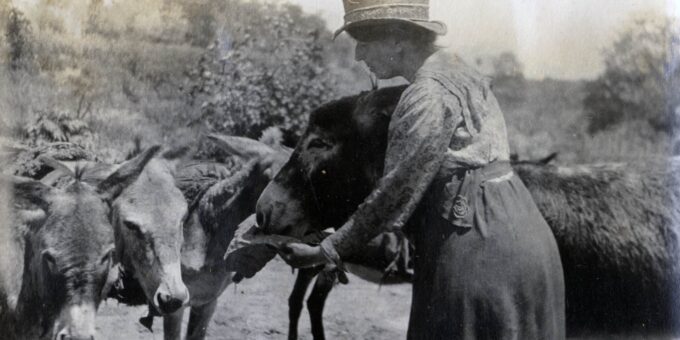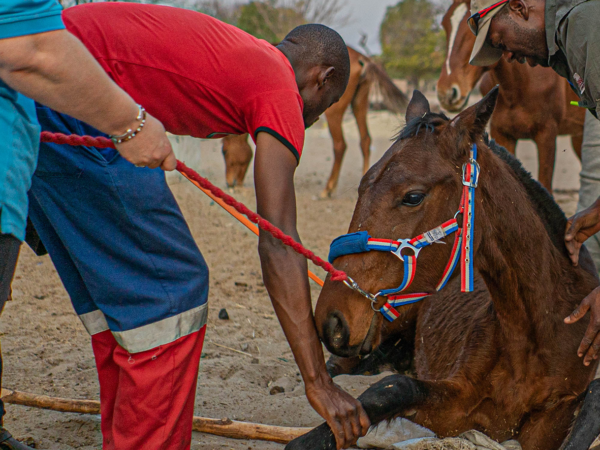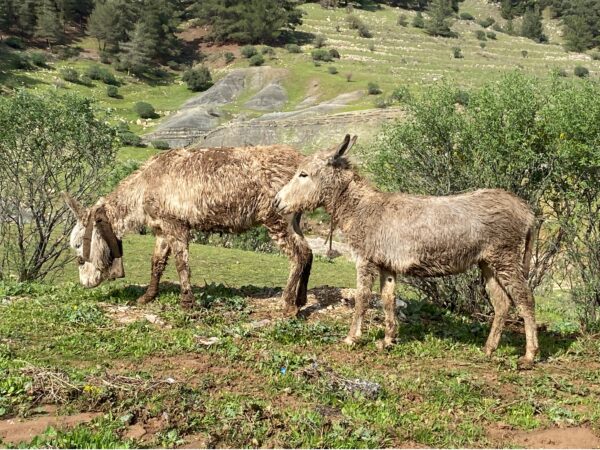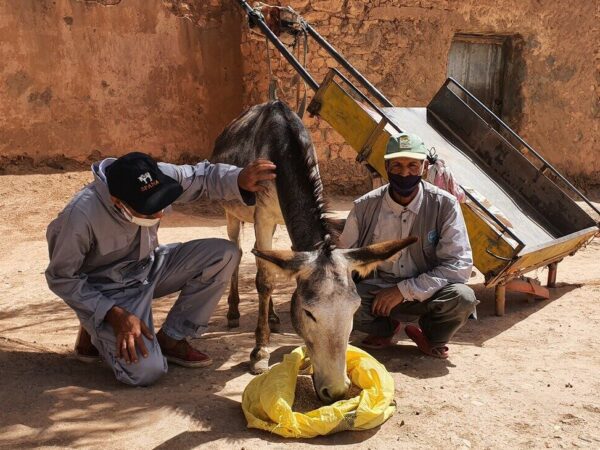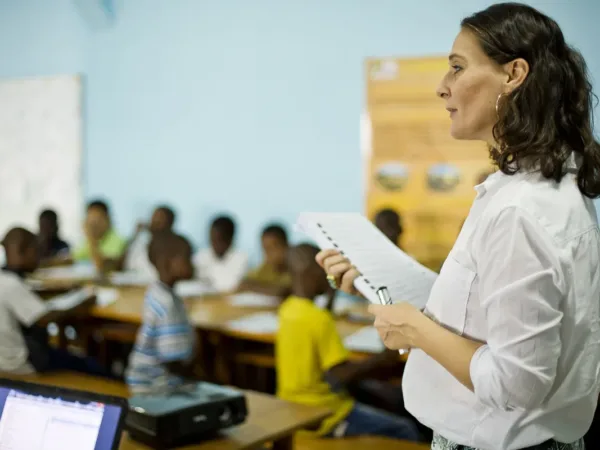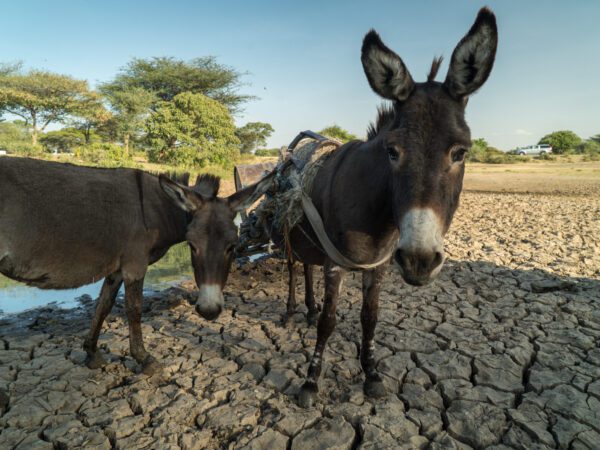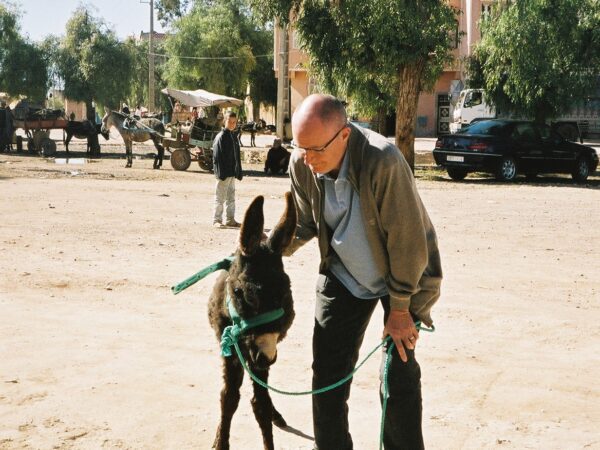Our incredible journey
In the early 1920s, Kate Hosali and her daughter Nina travelled extensively across North Africa; it was the beginning of a journey that would last a lifetime. As they toured through the countryside, passing bustling souks, remote communities and rural farms, they were inspired by much of what they saw. But they were also struck by the suffering and neglect of many of the working animals they encountered. These included donkeys, mules and camels who were malnourished and buckling under the weight of huge loads; and others suffering with wounds inflicted by poorly fitting harnesses.
The lives of these working animals were hard. With no access to professional veterinary care, they had to carry on despite their injuries, working through the pain.
Following their return to England, Kate and Nina couldn’t escape thoughts of this ‘sea of neglected suffering’. They felt compelled to act and founded SPANA – originally standing for the Society for the Protection of Animals in North Africa – on 2 October 1923. SPANA was the world’s first global charity dedicated to supporting working animal welfare across the world.
The early days
With great courage and dedication, Kate and Nina set about creating a more compassionate world for working animals.
While Nina coordinated the charity’s activities from London, Kate travelled back to North Africa to begin SPANA’s work. Her mission was all the more remarkable when you consider she was a woman working alone. But Kate wasn’t easily discouraged. Visiting market towns across Algeria, Morocco and Tunisia, she got to work in the fondouks – the local stable yards – where there could be up to 100 donkeys and mules. Astonished, but mostly grateful owners, would watch as she removed the animals’ harnesses to treat their wounds. News of her good work spread; people even started to call her the Toubiba – “Lady Doctor”.
From the beginning, SPANA’s work combined the treatment of working animals in need with the training of owners in good animal care and the education of children about animal welfare. Our global education programme was formally established by Nina Hosali in 1930.
SPANA’s work was delivered through a global network of local centres and mobile clinics. Our first centre was formally opened in Tunisia’s capital, Tunis, in 1927, while our first mobile clinic was also established in Tunisia during 1930.
In the decades that followed SPANA’s foundation, the charity proceeded to grow and develop its work across North Africa. Even as the Second World War tore North Africa apart, our dedicated teams worked on.
More recently
By the 1980s and 1990s, SPANA had expanded beyond the charity’s North African roots, launching new programmes to help working animals in the Middle East and then across West and East Africa. Our increased global focus was reflected in our full name being updated to ‘The Society for the Protection of Animals Abroad’ in 1991.
As the world entered a new millennium, SPANA continued to expand its global reach, establishing programmes in Mauritania, Ethiopia and Zimbabwe. Further programmes in India and Tanzania soon followed.
SPANA’s emergency projects also continued to develop, offering a lifeline to working animals at severe risk in crisis situations across the world. Thanks to our supporters, dedicated SPANA teams have provided lifesaving feed, veterinary treatment and support to working animals threatened by climate change, natural disasters and human conflict – including in Iraq, Afghanistan, Kenya, Egypt, Mongolia, India and Kosovo.
During the global coronavirus (Covid-19) pandemic, local government lockdowns and health restrictions meant that many animal owners were unable to work and struggled to look after or even feed their working animals. Throughout this time, SPANA teams across the world ensured that vital care and emergency feed was available for thousands of working animals whose survival was under threat.
In September 2023, Morocco was struck by a 6.8-magnitude earthquake. The epicentre was in the High Atlas Mountains – a remote area south of Marrakech where working animals are relied on to transport essential goods to isolated communities. Within days of the earthquake, our veterinary teams headed to the epicentre to provide lifesaving treatment and care to thousands of animals who had been injured and displaced by the earthquake. This included working alongside rescue teams to free working animals trapped under collapsed buildings. Working animals who supported the rescue effort by transporting much-needed supplies were also helped by our vets. We are continuing to distribute emergency feed and provide veterinary care to affected working animals.
Today
In 2023, SPANA celebrated 100 years of supporting the welfare of working animals.
Today, SPANA works in vulnerable communities around the world – across Africa, Asia, the Middle East and Latin America. SPANA is helping in more countries than ever before, though the scale of the challenge we face is immense.
Kate and Nina Hosali’s commitment to improving the welfare of working animals remains at the heart of our work today. Their pioneering spirit and unwavering passion continue to inspire everything we do. And we remain committed to fulfilling their mission – SPANA will continue to transform the welfare of working animals in need across the world.
Find out more in our special Centenary Brochure.

